The Middle East Policy Council's leadership and experts routinely provide analysis for domestic and international media platforms, including Al-Arabiya, Al-Ghad Al-Araby TV, Asharq TV, BBC, NPR, Sky News Arabia, and more. Please contact media@mepc.org to schedule an interview or briefing.
The views and opinions expressed by Non-Resident Scholars are solely those of the author and do not represent the positions of the Middle East Policy Council.
Non-Resident Scholars
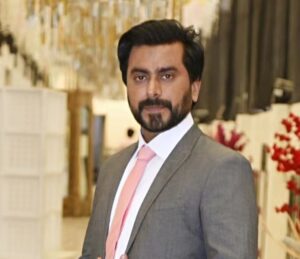 Dr. Shahid Ali is Non-Resident Scholar at the Middle East Policy Council and an Assistant Professor of International Relations and Foreign Policy at the Department of International Relations at Lahore College for Women University (LCWU). He previously worked as a Postdoctoral Fellow at the Institute of Middle East Studies (IMES), Northwest University, Xi’an, China. Previously, he worked as an Assistant Professor of International Relations at the University of Management and Technology (UMT), Lahore. Dr. Ali’s work has been published in reputed peer-reviewed journals, including Contemporary South Asia and Middle East Policy, among others. Dr. Ali holds a Ph.D. in International Relations from the School of International Public Affairs (SIPA), Jilin University, China, which was fully funded by the Chinese Government Scholarship awarded by the China Scholarship Council.
Dr. Shahid Ali is Non-Resident Scholar at the Middle East Policy Council and an Assistant Professor of International Relations and Foreign Policy at the Department of International Relations at Lahore College for Women University (LCWU). He previously worked as a Postdoctoral Fellow at the Institute of Middle East Studies (IMES), Northwest University, Xi’an, China. Previously, he worked as an Assistant Professor of International Relations at the University of Management and Technology (UMT), Lahore. Dr. Ali’s work has been published in reputed peer-reviewed journals, including Contemporary South Asia and Middle East Policy, among others. Dr. Ali holds a Ph.D. in International Relations from the School of International Public Affairs (SIPA), Jilin University, China, which was fully funded by the Chinese Government Scholarship awarded by the China Scholarship Council.
 Dr. Brian K. Barber is a Senior Non-Resident Scholar at the Middle East Policy Council and a Senior Fellow at Institute for Palestine Studies. He was recently an International Security Fellow at New America and Professor Emeritus at the University of Tennessee. As a social/cultural/political psychologist, he has studied youth and families in 15 cultures across the globe. For the past 30 years, Dr. Barber has researched more than 10,000 youth and families in the West Bank, East Jerusalem, and, most intensively, the Gaza Strip – where he has had long stays every year since 1994. His research findings have been published widely in top academic, medical, and public health journals, providing insight into if, how, why, and when youth engage in political activism, and what its impacts are in shaping their future lives, with unique insights into the nature of mental suffering and resilience. Barber is editor of the Oxford University Press volume Adolescents and War: How Youth Deal with Political Conflict. He is currently writing a narrative non-fiction on three Gazan families he has known intimately over the decades.
Dr. Brian K. Barber is a Senior Non-Resident Scholar at the Middle East Policy Council and a Senior Fellow at Institute for Palestine Studies. He was recently an International Security Fellow at New America and Professor Emeritus at the University of Tennessee. As a social/cultural/political psychologist, he has studied youth and families in 15 cultures across the globe. For the past 30 years, Dr. Barber has researched more than 10,000 youth and families in the West Bank, East Jerusalem, and, most intensively, the Gaza Strip – where he has had long stays every year since 1994. His research findings have been published widely in top academic, medical, and public health journals, providing insight into if, how, why, and when youth engage in political activism, and what its impacts are in shaping their future lives, with unique insights into the nature of mental suffering and resilience. Barber is editor of the Oxford University Press volume Adolescents and War: How Youth Deal with Political Conflict. He is currently writing a narrative non-fiction on three Gazan families he has known intimately over the decades.
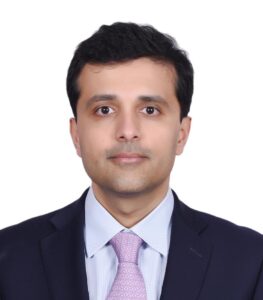 Dr. Abhishek Deshpande is a Non-Resident Scholar at the Middle East Policy Council and a Managing Director and Head of Global Commodities Research at NextEra Energy Inc. He joined NextEra Energy in February 2024 from ADNOC Group. At ADNOC, Dr. Deshpande was a Vice President and Head of the Market Intelligence/research team based in Abu Dhabi, UAE. Dr. Deshpande has had an international career spanning North America, Europe, the Middle East, and Asia. Before joining ADNOC Group, he was the Head of Global Commodities Research at OMV AG based at their HQ in Vienna, Austria, and he spent over a decade in Investment Banking heading global commodities and energy research teams at international banks including J.P. Morgan & Chase in New York and Natixis SA (Groupe BPCE) in London as well as Paris. As a hands-on energy strategist, Dr. Deshpande carried out a bottom-up fundamental and econometric analysis of energy markets and provided trade ideas and official price forecasts for the institutions he worked for. In his capacity as the head of research in banking, he regularly advised U.S. State Department, U.S. DOE, U.S. Treasury, Saudi Energy Ministry as well as Mexico’s Finance ministry on energy markets. Dr. Deshpande has a Doctorate in Chemical Engineering from University of Cambridge. At Cambridge, he worked on micro-fluidics development and its application in fine chemicals industry. He holds a Chartered status and fellowship from the Institute of Chemical Engineers (UK) and Energy Institute (UK).
Dr. Abhishek Deshpande is a Non-Resident Scholar at the Middle East Policy Council and a Managing Director and Head of Global Commodities Research at NextEra Energy Inc. He joined NextEra Energy in February 2024 from ADNOC Group. At ADNOC, Dr. Deshpande was a Vice President and Head of the Market Intelligence/research team based in Abu Dhabi, UAE. Dr. Deshpande has had an international career spanning North America, Europe, the Middle East, and Asia. Before joining ADNOC Group, he was the Head of Global Commodities Research at OMV AG based at their HQ in Vienna, Austria, and he spent over a decade in Investment Banking heading global commodities and energy research teams at international banks including J.P. Morgan & Chase in New York and Natixis SA (Groupe BPCE) in London as well as Paris. As a hands-on energy strategist, Dr. Deshpande carried out a bottom-up fundamental and econometric analysis of energy markets and provided trade ideas and official price forecasts for the institutions he worked for. In his capacity as the head of research in banking, he regularly advised U.S. State Department, U.S. DOE, U.S. Treasury, Saudi Energy Ministry as well as Mexico’s Finance ministry on energy markets. Dr. Deshpande has a Doctorate in Chemical Engineering from University of Cambridge. At Cambridge, he worked on micro-fluidics development and its application in fine chemicals industry. He holds a Chartered status and fellowship from the Institute of Chemical Engineers (UK) and Energy Institute (UK).
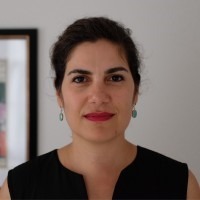 Ms. Negar Mortazavi is a Non-Resident Scholar at the Middle East Policy Council, an award-winning journalist and commentator, editor and host of the Iran Podcast, and a Senior Fellow at the Center for International Policy, based in Washington DC. She has been covering Iranian and Middle Eastern affairs as well as U.S. foreign policy towards the Middle East for over a decade. Ms. Mortazavi was previously a television anchor for Voice of America where she hosted a Persian talk show on current affairs and an English news segment on U.S. elections. She was also a Washington Correspondent for Iran International television, and previously worked at the International Center For Journalists, the National Iranian American Council, and the United Nations Development Programme headquarters in New York. Ms. Mortazavi was previously a television anchor for Voice of America where she hosted a Persian talk show on current affairs an on current affairs and an English news segment on U.S. elections. She was also a Washington Correspondent for Iran International television, and previously worked at the International Center For Journalists, the National Iranian American Council, and the United Nations Development Programme headquarters in New York. She obtained an M.A. from Brandeis University and a B.A. from the University of Massachusetts.
Ms. Negar Mortazavi is a Non-Resident Scholar at the Middle East Policy Council, an award-winning journalist and commentator, editor and host of the Iran Podcast, and a Senior Fellow at the Center for International Policy, based in Washington DC. She has been covering Iranian and Middle Eastern affairs as well as U.S. foreign policy towards the Middle East for over a decade. Ms. Mortazavi was previously a television anchor for Voice of America where she hosted a Persian talk show on current affairs and an English news segment on U.S. elections. She was also a Washington Correspondent for Iran International television, and previously worked at the International Center For Journalists, the National Iranian American Council, and the United Nations Development Programme headquarters in New York. Ms. Mortazavi was previously a television anchor for Voice of America where she hosted a Persian talk show on current affairs an on current affairs and an English news segment on U.S. elections. She was also a Washington Correspondent for Iran International television, and previously worked at the International Center For Journalists, the National Iranian American Council, and the United Nations Development Programme headquarters in New York. She obtained an M.A. from Brandeis University and a B.A. from the University of Massachusetts.
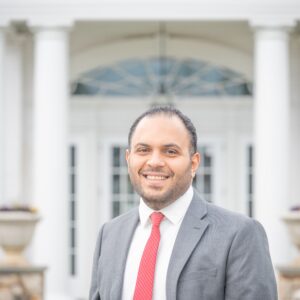 Mr. Marco Mossad is a Non-Resident Scholar at the Middle East Policy Council, and he currently manages a federally funded program at a prominent national refugee resettlement organization. He leverages his expertise and passion for international relations, with a specific focus on U.S. foreign policy in the MENA region, immigration, artificial intelligence, and cybersecurity issues, backed by a master's degree from Liberty University. Mr. Mossad is deeply engaged in the intersection of technology and international affairs, affiliating with All Tech is Human, Young Professionals in Foreign Policy, and the Center for AI and Digital Policy. His technical background is demonstrated by holding five cybersecurity certificates, including Certified Ethical hacker (CEH) and CompTIA Security+. Mr. Mossad is a familiar face on Middle Eastern news channels. He is fluent in Arabic, German, and English. Additionally, Marco contributes insightful analysis articles in both languages to various U.S. and Middle Eastern foreign policy outlets, underscoring his commitment to global dialogue.
Mr. Marco Mossad is a Non-Resident Scholar at the Middle East Policy Council, and he currently manages a federally funded program at a prominent national refugee resettlement organization. He leverages his expertise and passion for international relations, with a specific focus on U.S. foreign policy in the MENA region, immigration, artificial intelligence, and cybersecurity issues, backed by a master's degree from Liberty University. Mr. Mossad is deeply engaged in the intersection of technology and international affairs, affiliating with All Tech is Human, Young Professionals in Foreign Policy, and the Center for AI and Digital Policy. His technical background is demonstrated by holding five cybersecurity certificates, including Certified Ethical hacker (CEH) and CompTIA Security+. Mr. Mossad is a familiar face on Middle Eastern news channels. He is fluent in Arabic, German, and English. Additionally, Marco contributes insightful analysis articles in both languages to various U.S. and Middle Eastern foreign policy outlets, underscoring his commitment to global dialogue.
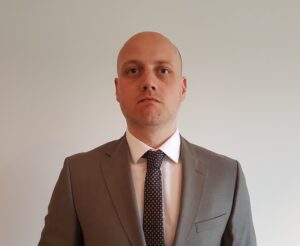 Dr. David Roberts is a Non-Resident Scholar at the Middle East Policy Council and a Senior Lecturer (Associate Professor) at King’s College London where he leads the twin-track Arabic and English Master of Research (MRes) programme in the School of Security Studies. Additionally, Dr. Roberts is Adjunct Faculty at Science Po’s Paris School of International Affairs, a Non-Resident Fellow at the Arab Gulf States Institute Washington, and the founder and commissioning editor for Cambridge University Press’s book series Elements in Middle East Politics. Previously, Dr. Roberts taught for King’s at the Qatar Defence Academy, and he was the Director of the Gulf office of the Royal United Services Institute for Defence and Security studies think-tank (RUSI Qatar). He obtained his Ph.D. from Durham University.
Dr. David Roberts is a Non-Resident Scholar at the Middle East Policy Council and a Senior Lecturer (Associate Professor) at King’s College London where he leads the twin-track Arabic and English Master of Research (MRes) programme in the School of Security Studies. Additionally, Dr. Roberts is Adjunct Faculty at Science Po’s Paris School of International Affairs, a Non-Resident Fellow at the Arab Gulf States Institute Washington, and the founder and commissioning editor for Cambridge University Press’s book series Elements in Middle East Politics. Previously, Dr. Roberts taught for King’s at the Qatar Defence Academy, and he was the Director of the Gulf office of the Royal United Services Institute for Defence and Security studies think-tank (RUSI Qatar). He obtained his Ph.D. from Durham University.
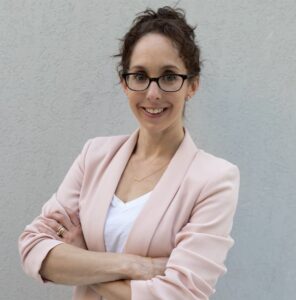 Dr. Annie Tracy Samuel is a Non-Resident Scholar at the Middle East Policy Council, an associate professor of history at the University of Tennessee at Chattanooga, and president of the Southeast Regional Middle East and Islamic Studies Society. She previously served as a research fellow at the Harvard Kennedy School’s Belfer Center for Science and International Affairs. She is a scholar of modern Middle Eastern history and politics focusing on post-revolutionary Iran, security and military affairs, and U.S. foreign policy in the region. Her book, The Unfinished History of the Iran-Iraq War: Faith, Firepower, and Iran’s Revolutionary Guards, was published by Cambridge University Press in 2022. Dr. Tracy Samuel earned her Ph.D. and M.A. (magna cum laude) in history from Tel Aviv University and her B.A. in history and political science from Columbia College, Columbia University.
Dr. Annie Tracy Samuel is a Non-Resident Scholar at the Middle East Policy Council, an associate professor of history at the University of Tennessee at Chattanooga, and president of the Southeast Regional Middle East and Islamic Studies Society. She previously served as a research fellow at the Harvard Kennedy School’s Belfer Center for Science and International Affairs. She is a scholar of modern Middle Eastern history and politics focusing on post-revolutionary Iran, security and military affairs, and U.S. foreign policy in the region. Her book, The Unfinished History of the Iran-Iraq War: Faith, Firepower, and Iran’s Revolutionary Guards, was published by Cambridge University Press in 2022. Dr. Tracy Samuel earned her Ph.D. and M.A. (magna cum laude) in history from Tel Aviv University and her B.A. in history and political science from Columbia College, Columbia University.
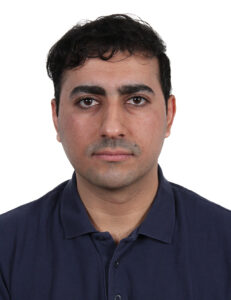 Ranj Tofik is a Non-Resident Scholar at the Middle East Policy Council, a Kurdish researcher, and a Ph.D. candidate in political science at the University of Warsaw, Poland. His research and interest focus on politics in the Middle East, the Kurdish issue, the role of the Middle East in US-China relations, and geopolitics. He is currently working on his doctoral dissertation on the importance of Iran in the American-Chinese competition. He has publications in English, Kurdish, and Arabic.
Ranj Tofik is a Non-Resident Scholar at the Middle East Policy Council, a Kurdish researcher, and a Ph.D. candidate in political science at the University of Warsaw, Poland. His research and interest focus on politics in the Middle East, the Kurdish issue, the role of the Middle East in US-China relations, and geopolitics. He is currently working on his doctoral dissertation on the importance of Iran in the American-Chinese competition. He has publications in English, Kurdish, and Arabic.